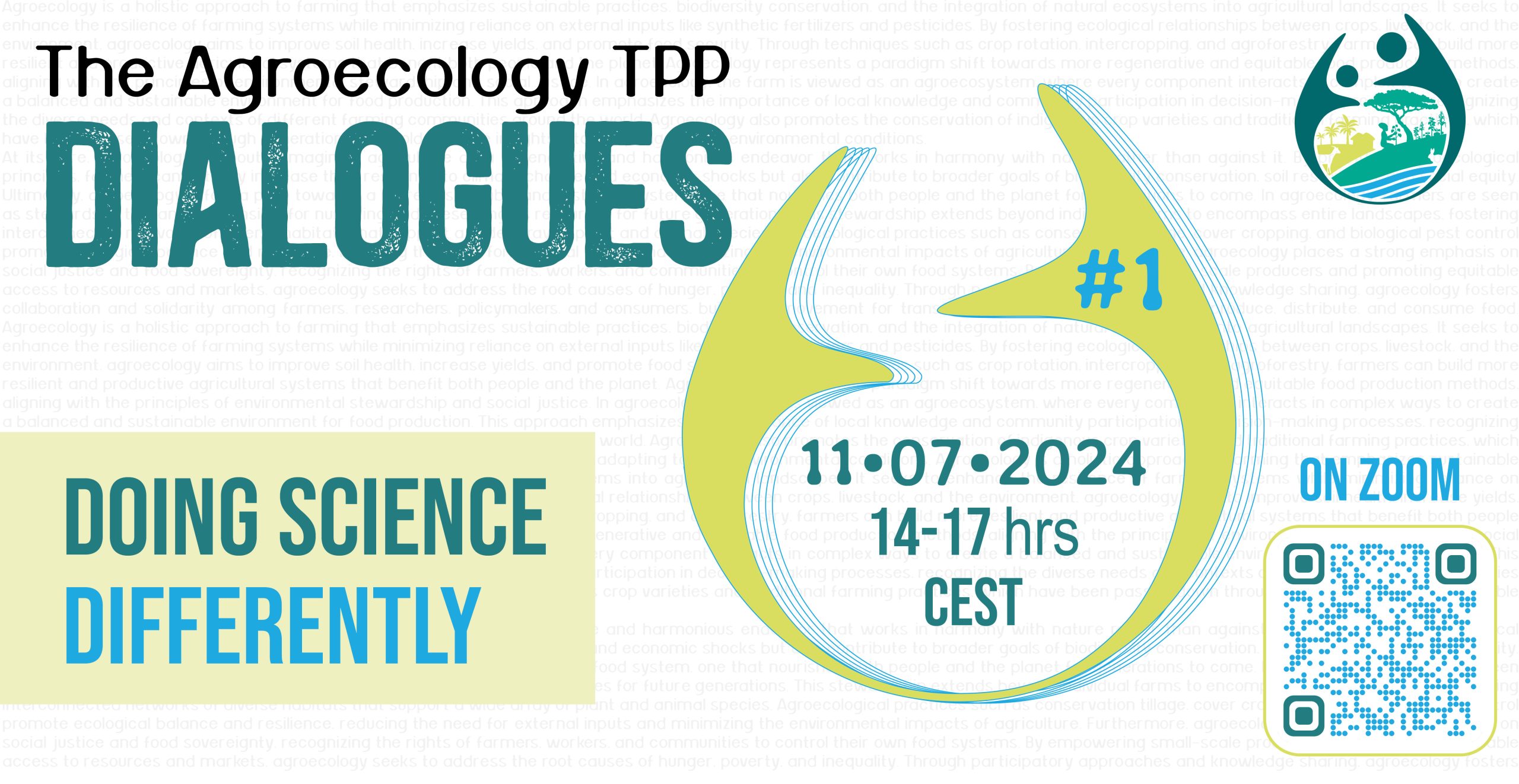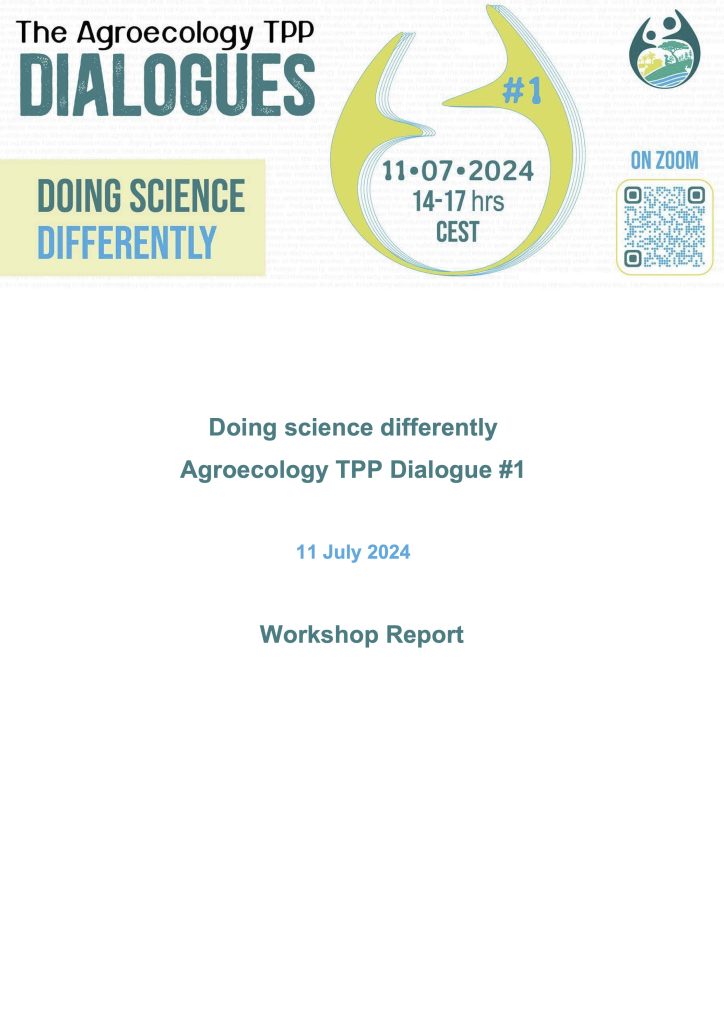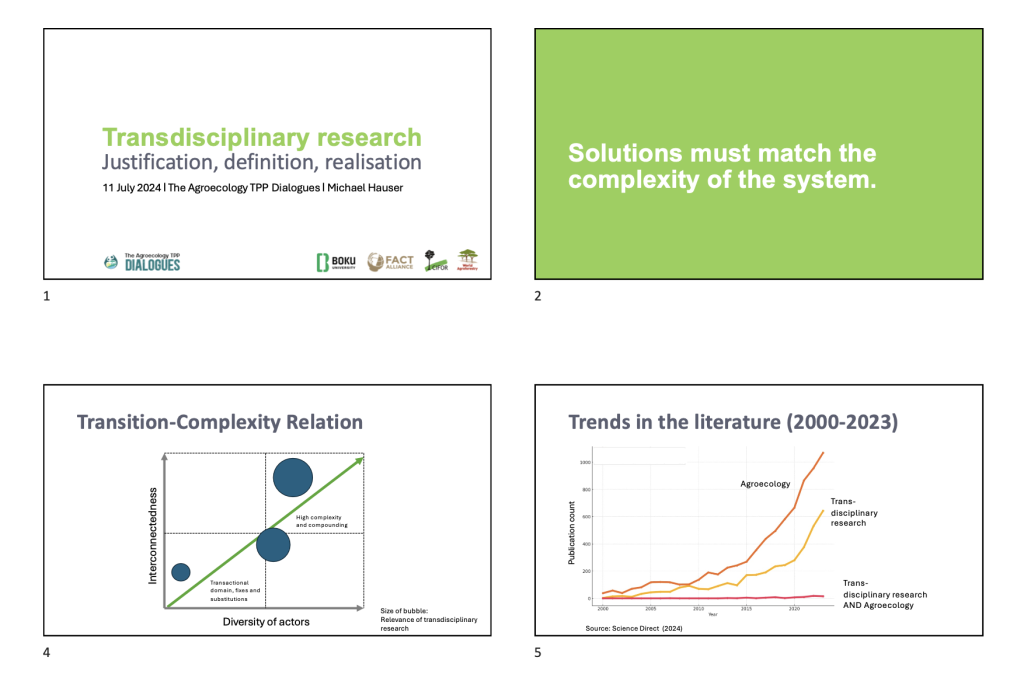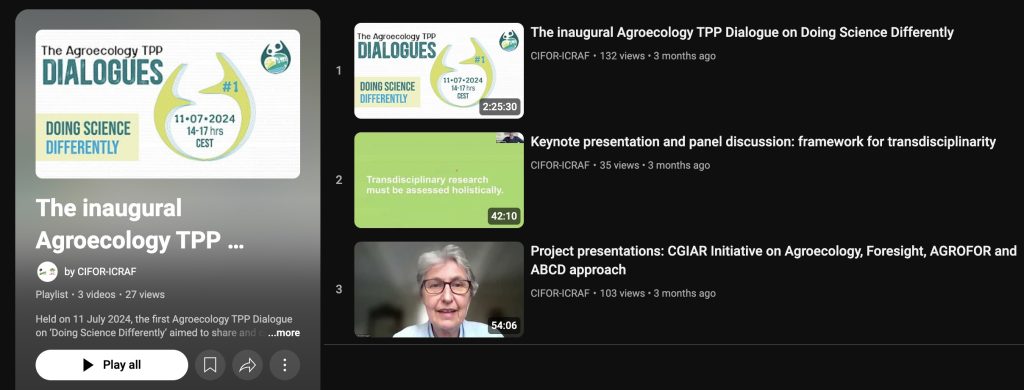Our first Dialogue was held on 11th July 2024. The inaugural topic, “Doing Science Differently,” sought to foster the co-creation of knowledge, amplify diverse voices, support capacity building, and strengthen networking and collaboration among stakeholders, centering around transdisciplinarity.
Transdisciplinary research stands apart from disciplinary science in several ways, with at least five distinct characteristics that define its approach and impact. These five characteristics shape how problems are identified, solutions are developed, and the overall effectiveness of the research and have been analysed and discussed during our workshop.
- Integration of disciplines
Unlike disciplinary research that defines problems from the perspective of a specific field (e.g. soil science, agronomy, water management, etc.), transdisciplinary agroecology adopts a more cross-disciplinary approach to understanding and tackling food system challenges.
- Level of collaboration
Analogous to Arnstein’s Leader of Citizen Participation (1969), transdisciplinary research can be structured along a hierarchy based on the intensity of engagement and collaboration among participants. This hierarchy follows this range: Informing (lowest level) • Consultation (second lowest-level) • Collaboration (mid-level) • Partnership (top-level).
- Problem-solving orientation
The incorporation of relevant perspectives and the solution-oriented nature of transdisciplinary research contribute to its increased saliency, legitimacy, credibility, and effectiveness. Solutions derived from transdisciplinary projects should directly address real-world issues.
- Innovation
By fostering creative thinking and collaboration across different fields, innovation enables the synthesis of new ideas and approaches that surpass the limitations of single-discipline research. The dynamic integration of knowledge and techniques sparks unique insights and technologies essential for tackling intricate challenges like climate change, global health crises, and sustainable development. Innovation not only propels scientific discovery but also amplifies the impact of transdisciplinary efforts in addressing pressing global issues.
- Impact orientation
Transdisciplinary agroecology is inherently solution-oriented, and it distinguishes itself through an explicit normative focus. This means that the research is not just about understanding a problem but is actively oriented towards finding solutions to it.
Participants also added more nuances and possibilities to these dimensions, confirming the importance of co-creating together through participatory knowledge processes!
This page gathers all the material from the workshop.





